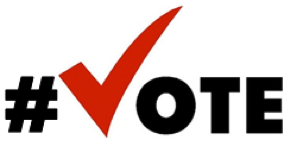In what could be a harbinger of the 2016 election, Hillary Clinton recently slammed North Carolina’s new voter ID law, saying that it reads like a “greatest hits of voter suppression.” Aside from requiring a government-issued photo ID to vote, the law’s other provisions cut early voting to — gasp! — ten days and end same-day registration during the early-voting period.
One can certainly debate the necessity of crafting new legislation, but the ensuing hysteria, including lawsuits by the Southern Coalition for Social Justice and the ACLU, misses the larger point. Conservatives and Republicans believe that the endless attempts to make voting easier (motor voter registration, for instance) are, in the words of National Review‘s Jonah Goldberg, synonymous with making it cheaper. Simply, if voting requires a degree of effort or even inconvenience and a moment of deliberation, then maybe we are a better people because of it. Here in North Carolina (and a handful of other states), those only slightly interested in public affairs can be roused out of their apathy by a polished but ineffectual orator, register to vote and then cast their votes all in the same day. American Idol winners are chosen with more contemplation.
Early voting, likewise, once reserved for the military and hardship cases, has degenerated, if not into a circus, then into a cushy vehicle of convenience to those for whom standing in line is a bother. Whatever the advantages of early voting, surely our founders envisioned all citizens voting pretty much together, sorting out the same facts. With voting becoming not a day but a season, how many news cycles and debates affect one vote but not another?
When the media (barely) revealed candidate Barack Obama’s expressed goal of targeting big energy (particularly the coal industry) literally days before the election in 2008, how many already-cast votes did not reflect knowledge of Obama’s radical agenda? Furthermore, how much greater leeway is granted for corruption as more days and weeks are added to election season?
Whether or not corruption exists, however, is not really the point. Not that Democrats care — as long as they keep winning national races, they don’t give a whit about any preventive measures aimed at ensuring fair elections. Let them lose a nail-biter or two (like in 2000) and election reform will be all the rage. Till then, they take refuge in the claim that Republicans just want to keep black people away from the polls.
Bottom line — and most of us know this, but few will dare say it — maybe not everyone should vote. If you have to be induced by convenience to vote, then maybe you shouldn’t. If your preference is based on your narrow self interest and not the overall good of your country, then maybe you shouldn’t vote. If you have no idea who your senators are or who the vice president is, then maybe you shouldn’t vote.
The idea that voting should be rational and contemplative, as much a rite as a right, is no doubt the impetus behind North Carolina’s harmless little measures. Only modern liberals believe that large masses of poor and black Americans are somehow incapable of procuring photo IDs! But the only way for Hillary Clinton to gain power is to convince you that you are powerless. Voting, while a precious right born of toil, revolution and blood, is hardly, unto itself, a shield against tyranny. Merely the right to vote will not protect one citizen from the passions of the mob. That requires a culture that embraces individual spirit, purpose and rationality. The fact that demagogues derive their power from the vote is the strongest argument that voting should enjoy a very limited, deliberative time period.
David Bozeman, former Libertarian Party Chairman, is a Liberty Features Syndicated writer.








